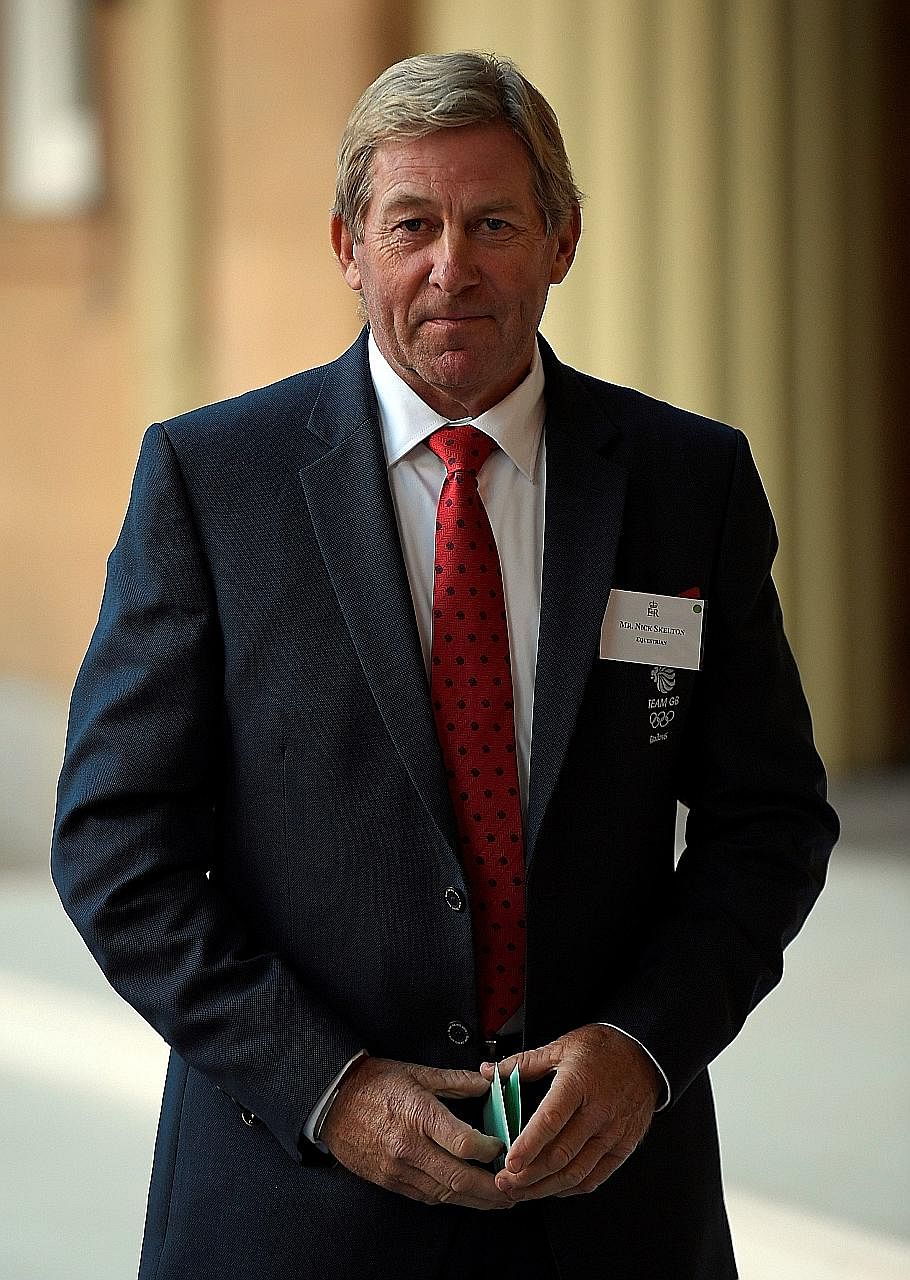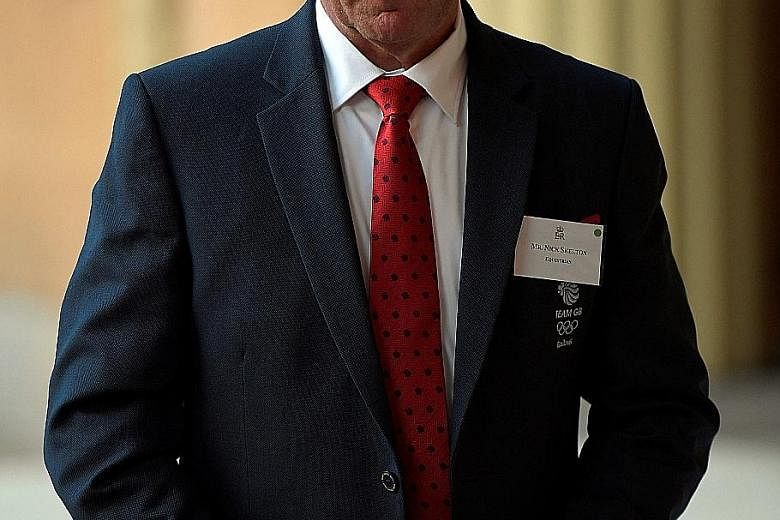What would you give for Olympic gold?
In the case of Joseph Schooling it was the sacrifice of a normal youth in Singapore to immerse himself in the United States swimming regimen - and the deferment of his national service.
With England horse rider Nick Skelton, it entailed a longer journey (58 years and counting) and the defiance of medical advice that he should not have come back and risked a fatal fall after breaking his neck 16 years ago.
Gold at his second Olympics assures Schooling of fame and fortune, whatever he does later in life.
A first individual gold in his seventh Games, and the tortuous journey that began 20 years before Schooling was born, has just been recognised by world equestrian governing body FEI, which voted Skelton its Best Athlete of 2016 on Tuesday in Tokyo.
Of course, riders in any equine variation of sport, require a partnership of body and mind between horse and rider. And Skelton would be the first to tell you he couldn't, at any age in his epic career, have won without his exceptional show jumper, the 13-year-old Dutch-bred stallion Big Star.

And not just the horse because, as the FEI also acknowledged this week, Skelton employs a groom, Mark Beever, to work full time on just this one superb animal.
Skelton says he will go on competing around the world until Big Star is past it. At that point, the stallion will be retired to stud, which indeed he already does serve as hundreds of straw samples of his semen are sold to breeders trying to replicate his genes as far away as Australia and New Zealand.
Small wonder that Beever, just named the FEI's "Best Groom" of the year, is acknowledged for his hard work and patience by Skelton - and praised by the judges.
"His dedication to Big Star is beyond question," they said. "He caters to his every need, ensuring the horse is happy and settled down before he looks after himself."
The unsung groom, as valuable as any trainer.
That said, Skelton's perseverance, some might say his obsession, has been served by a good many four-legged friends. It began in a Warwickshire field, in the heart of the English country, way back when Nick was an 18-month-old toddler.
Yes, 18 months. His empathy with horses, and his willingness to fall, even to break, and to get right back into the saddle began with a Welsh mountain pony called Oxo, born in the same year as him and kept by him until the animal was well into his thirties.
By 1975, Skelton won his first gold and silver medals at the European Championships. He was 17, tough, rugged, plain speaking and single-minded.
He seemed to be around forever, trying and trying again to win the gold medal that Schooling won at the second time of asking. In fact, if you count the 1980 Alternative Summer Games, staged in Los Angeles as an American-led protest to the Soviet invasion of Afghanistan, Skelton has had eight goes at Olympic triumph.
Perhaps that explains his tears on the podium when, finally, the piece of gold was hung around his neck.
"I've not got the best body in the world," Skelton said this week. "yet I managed to win a gold medal."
The oldest Olympic champion in 108 years. The old curmudgeon who is having to revise his autobiography Only Fools And Horses, with particular re-writing around the time he was advised in 2000, that the fall that broke the C1 vertebra in two places and tore a ligament away from his spine, meant he would endanger his life if he ever mounted a horse again.
A German specialist reviewed the neck 18 months later and told him that the breaks had healed far better than expected.
There and then, Skelton knew that he was of retirement age from competitive sport. But not satisfied with a CV that lacked the top rung of the Olympic podium.
He still had - has - the toll on other areas of his body. The rheumatic, worn-out knees that have required surgery. The degenerative hip that eventually had to be replaced 2011, and means he needs a step-ladder to mount Big Star these days.
There is no financial imperative any longer to go around and around the arena, the training fields, the world flights to far-flung places. Skelton could satisfy his lifelong addiction to working with horses through his partner, the American equestrian rider Laura Kraut, who has stables in Florida.
He could stay at home on the farm in Warwickshire, "living" the sporting life through his two sons, Daniel, a racehorse trainer, and Harry, a jockey.
But the compulsion isn't yet done. The "Old Man" is still out there, competing (he says) until Big Star loses the edge that Skelton knew, the first time he set eyes on him, made him a Formula 1 equine in his field.
If you imagine the shoals of letters Joseph Schooling gets for his year putting Singapore on the Olympic map, think of Skelton whose lifetime of perseverance - and no doubt the emotion that showed how much it all meant - triggered off letters from people saying he is their inspiration.
Sentimentality towards the end of a career that has banked over $11 million in prize money for himself, his family and the horse owners.
The "Best Athlete" is only as good as the horse he or she rides.
And the intention to retire is believable only once his wonder horse Big Star gives in to the wear and tear that he, too, has known. Unless, when that time comes, there is not another young steed that catches Skelton's eye.
Age may wither him. But what will fill the void that started with Oxo and continues now through Big Star? Man cannot be retired like a horse to stud.


